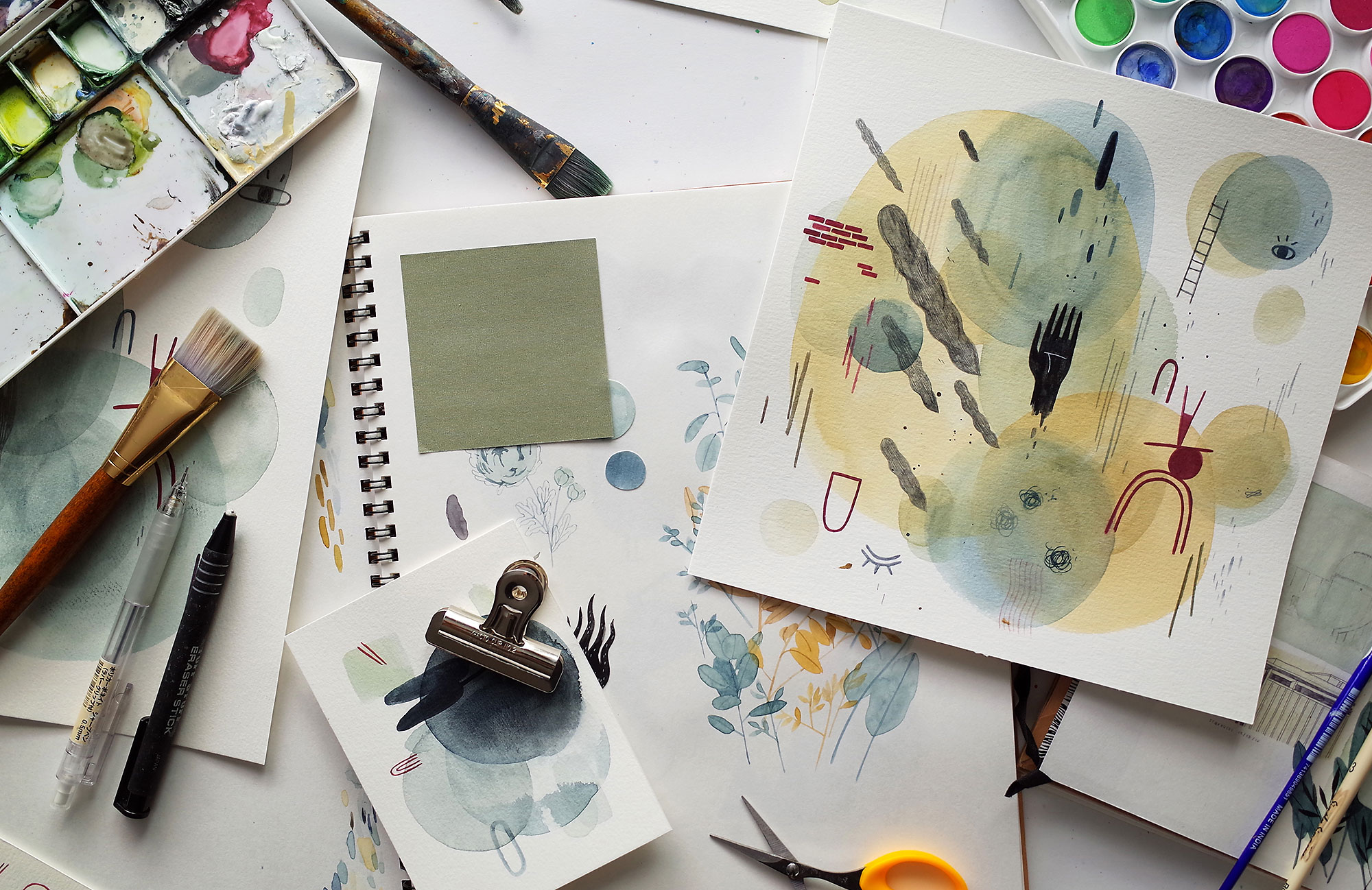
The first warning sign should have been the label attached to the solid wood tabletop I was planning to use for my desk: "Should be treated with BEHANDLA wood treatment oil for indoor use prior to usage."
The second warning should have been the label on the back of the BEHANDLA wood treatment oil: "Sand the surfaces using fine-grained sandpaper. Brush clean. For a more even result, moisten the surfaces and leave for two hours before sanding."
My first foray into working with untreated solid wood — beech, for those who are wondering — wasn't exactly the glorified hipster DIY project I imagined. I was overeager and underprepared, and it showed in my process.
So there I was, four hours later, drenched in sweat from hand sanding this 5-by-2.5-foot piece of wood with only one sheet of sandpaper, corners folded and tucked to prolong its usefulness.
As I wrestled with competing ideas of giving up and knowing that I was beyond the point of return, it occurred to me that I was enjoying myself. There was a strange joy in finding a rough spot in the wood, rhythmically sanding it over, and then blowing and brushing the dust away to reveal the smooth wood underneath.
Dare I say, the experience was spiritual. I felt an unexpected closeness to God, and not just because Jesus's occupation was carpentry before His time of ministry. Each grating of aluminum oxide against the wood grains was a reminder of how God slowly and patiently works to smooth out the rough spots in my life and character. He continues to do so today.
There is a certain intimacy in a God who forms us out of dust, spits into the ground, and whispers with a still, small voice. These aren't mere methods of getting things done, but point to aspects of beauty in small and deliberate acts.
When we engage in work — however that looks like for each individual — we're representing the creative attributes of God. We create because God is the Creator.
In "Hands On", we wonder how the things we do point to beautiful aspects of God. For many of us, that's a lens we never consider for our work. We work because it provides money and food for ourselves and our families. We work because we have to. We work because that's the only life we've ever known.
We don't often stop to think that our work reflects how beautiful God is. How our work shapes worlds and creates order out of chaos. How it restores and renews.
Rather than reducing creativity and wonder to just occasional feel-good moments, we should be valuing it as an active practice in our lives. This is a start to that conversation.

Daniel Chou (he) serves as the editor-in-chief of Inheritance and is also one of the magazine’s founders. He holds a Master of Divinity from Fuller Theological Seminary. Outside of Inheritance, he is co-founder of Winnow+Glean and enjoys roasting coffee. He posts sporadically on Instagram @dchou and even more sporadically on Twitter @danielchou.

Maggie Chiang was born to a Taiwanese family in the City of Angels and is a full-time artist and part-time dreamer. Inspired by places both real and fictitious, her illustrations evoke a longing for adventure and the pursuit of the unknown, exploring impossible landscapes and places unseen. You can find her online at hellomaggiec.com.